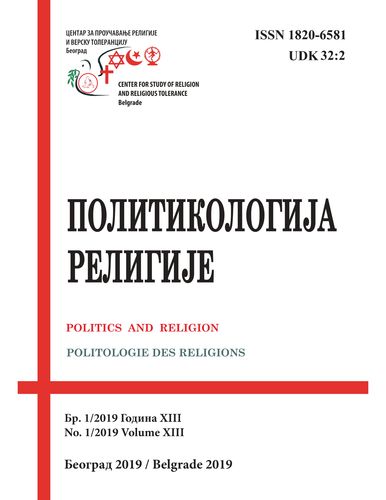TOCQUEVILLE’S THEOLOGICO-POLITICAL PREDICAMENT: LEO STRAUSS, RELIGION AND DEMOCRACY IN AMERICA
TOCQUEVILLE’S THEOLOGICO-POLITICAL PREDICAMENT: LEO STRAUSS, RELIGION AND DEMOCRACY IN AMERICA
Author(s): Craig Douglas AlbertSubject(s): Politics and religion, Sociology of Religion, History of Religion
Published by: Центар за проучавање религије и верску толеранцију
Keywords: Alexis de Tocqueville; Church and State; Democracy; Straussian Hermeneutics;
Summary/Abstract: This paper analyzes Tocqueville’s Democracy in America in a new light. When viewed through Leo Strauss’ conception of the theologico-political problem, a novel reading of Tocqueville is presented. This interpretation argues that one of Democracy’s major themes concerns reason versus revelation. Within such a reading, it contends that Tocqueville’s seminal contribution to the history of political philosophy contained within it his reluctant announcement that religion may not be able to cure the social ills liberal democracy brings with it. Mainly, this is because Tocqueville fears democracy will contribute to the decline of religion itself. Tocqueville subtlety reveals his concerns over religion’s possible inadequacy, offers explanations thereof, and postulates another concept as a mitigating tool that has similar moderating effects on democratic defects: self-interest well understood.
Journal: Политикологија религије
- Issue Year: XIII/2019
- Issue No: 1
- Page Range: 113-136
- Page Count: 24
- Language: English

